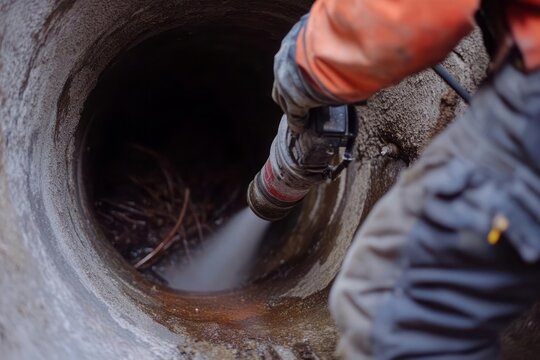
blocked drain reading are one of the most common household problems. Whether it’s the kitchen sink, bathroom drain, or outdoor gutters, encountering a blockage can be frustrating and potentially expensive to fix if not addressed promptly. In Reading, a town with a mix of older and newer properties, blocked drains can become a recurring issue due to a variety of factors.
Common Causes of Blocked Drains
- Food Waste Kitchen sinks are particularly vulnerable to blockages caused by food waste. Grease, fat, coffee grounds, and small food particles can accumulate over time, creating a sticky residue that traps other debris. When not disposed of properly, these items clog the pipes and lead to slow drainage or complete blockages.
- Hair and Soap Scum Bathroom drains are often blocked by hair and soap residue. Hair strands easily become tangled, forming clumps that obstruct water flow. Soap scum, especially from soap bars, combines with minerals in the water, forming a hard substance that sticks to the pipes.
- Foreign Objects In many cases, blockages are caused by foreign objects that accidentally find their way into the drainage system. Children’s toys, wipes, sanitary products, and even excessive toilet paper can create major blockages, particularly in toilets.
- Tree Roots In more rural or suburban areas of Reading, tree roots are a leading cause of blocked outdoor drains. Trees are naturally drawn to water sources, and their roots can infiltrate small cracks in underground pipes. Over time, the roots grow and expand, causing major damage and blockages.
- Mineral Buildup Hard water, which contains a higher concentration of minerals like calcium and magnesium, is common in many areas. Over time, these minerals can accumulate inside pipes, reducing water flow and eventually leading to blockages.
Prevention Tips
- Mind What You Dispose Of Avoid pouring fats, oils, and grease down the kitchen sink. Instead, let them cool and dispose of them in the bin. Similarly, use strainers in your sink and shower drains to catch food particles and hair before they enter the pipes.
- Regular Cleaning Perform regular maintenance by flushing your drains with hot water, baking soda, and vinegar to break down minor buildups of grease or soap scum. Regularly cleaning drain traps and removing visible debris will also help prevent blockages.
- Limit Use of Chemical Drain Cleaners Although chemical cleaners can provide a quick fix for minor blockages, frequent use can corrode pipes and harm the environment. Opt for mechanical solutions, like a plunger or drain snake, for tougher clogs.
- Tree Management If you have trees on your property, make sure their roots are not growing near underground drainage systems. Regular inspections can help catch root intrusion early. You can also consider root barriers to prevent further damage.
- Install Drain Guards Use drain guards in sinks, bathtubs, and shower stalls to catch food particles, hair, and other debris. These simple devices can go a long way in preventing blockages.
How to Unblock Drains
- Plunger A plunger is a useful tool for dislodging blockages in sinks and toilets. The suction created by the plunger can help move the obstruction, restoring water flow.
- Drain Snake A drain snake, or auger, is a flexible tool that can be fed into the drain to physically break up or pull out the blockage. It’s particularly effective for hair or larger debris.
- Hydro-Jetting For more severe blockages, hydro-jetting is a professional method where high-pressure water is used to blast away blockages. This method is often used for stubborn clogs caused by tree roots or heavy grease buildup.
- Call a Professional When DIY methods fail, it’s time to call a professional plumber. In Reading, there are many local experts who can quickly diagnose and fix your drainage problems. They have the tools and expertise to deal with tough clogs and can also provide advice on long-term prevention.
Conclusion
Blocked drains are an inconvenience, but with a little preventative care, many issues can be avoided. Understanding the common causes of blockages and taking steps to prevent them will keep your drainage system running smoothly. However, if you find yourself dealing with a stubborn blockage, don’t hesitate to call in a professional to avoid further damage to your property. Keep your drains clean, and you’ll save yourself a lot of hassle in the long run!